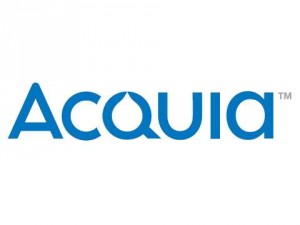This blog post is an excerpt from GovLoop’s recent guide, Mapping Government’s Journey to the Cloud: 8 Success Stories. The guide includes interviews with federal, state and local officials who have overcome common barriers to cloud adoption, including procurement and security. Download the full guide here to get their insights and tips for success.
The real value of cloud computing doesn’t come from agencies shifting their data from government data centers to a cloud vendor’s facility.
Where agencies get the most value for their money is in digital cloud platforms that enable them to offload operations, such as information security around the data, and shift the control burden from their IT teams to service providers, said Dan Katz, Technical Director for Acquia’s public sector business. This frees up agencies to focus on their missions and meeting their users’ needs.
Today, citizens have come to expect fast, efficient and accessible services from government agencies. But to be successful, agencies must ensure that their digital strategies increase user engagement and address opportunities to save money.
Managed cloud platforms and open source software are enabling agencies to do both.
So what exactly is a managed cloud platform? A prime example is managed Platform-as-a-Service (PaaS), which is seen as the next evolution of digital experience management. PaaS comes with the orchestration layer pre-built and provides organizations with a true end-to-end platform stack specifically designed to support digital experiences. This enables organizations to focus on the experience itself rather than the infrastructure behind it.
Modern digital experience management requires much more agility, and PaaS environments allow digital teams to focus on creating experiences that serve users and connect all the systems required to power those experiences.
A growing number of government agencies are also using open source software to support their digital operations. Today, Drupal powers about 40 percent of U.S. government websites. But the real power lies in agencies combining their cloud and open source approaches.
“For agencies to operate in the modern era on shoestring budgets, they need the managed PaaS in the cloud, and the flexibility and innovation of open source,” Katz said. “Agencies that are able to do so successfully are emerging as leaders and paving the way for others to follow.”
But there are a few things agencies should know as they look to combine their cloud and open source strategies.
Many large cloud-hosting providers serving government agencies advertise the ability to support mission-critical Drupal solutions, but more often than not these providers are focused on infrastructure and offer virtual machines in a data center with canned configurations and some level of managed support that is often very expensive.
“It’s true they may meet the requirements on paper, but buyers beware,” Katz warned. “Moving your website from an internal data center to a managed cloud host is no different from moving a car from your own garage to a rented space down the street. In both cases, you’d need to provide expensive maintenance and care for the car, no matter where it is located.”
In contrast, a true digital cloud platform, such as Acquia Cloud, provides tools and application program interfaces for DevOps, monitoring and health checks designed for managers and non-technical users, application-level support and service-level agreements, and deep integration between the application and the platform.
“In this instance, using the car analogy, you would not have to worry about keeping the car running or providing regular maintenance,” Katz said. “You would not need to provide a team to keep the car tuned up and ready to roll at any time. That would be a service provided for you.”
A great real-world example is the state of Georgia. When the state moved to Acquia’s Digital Cloud in 2012, it projected $4.7 million in cost savings based on the freedom the state would gain from using a true digital platform with application-level support. Putting support in the hands of people whose full-time job is to support the cloud brought the state cost savings, expertise, scalability and better time management.
Nikhil Deshpande at the Georgia Technology Authority said, “Experts can monitor our platform and servers 24/7, providing recommendations to updates and changes if needed at a moment’s notice. We have had some issues with distributed denial-of-service attacks where Acquia was able to bring our websites back up and running in a fraction of the time compared to other state government websites that experienced the same attacks.”
That’s the power of a digital cloud platform.
“The key takeaway is that it’s not enough to host in the cloud,” Katz said. “Instead, your organization needs a digital cloud platform that significantly offloads the operations to a qualified provider and enables you to realign your resources toward innovation and improving citizen services.”

